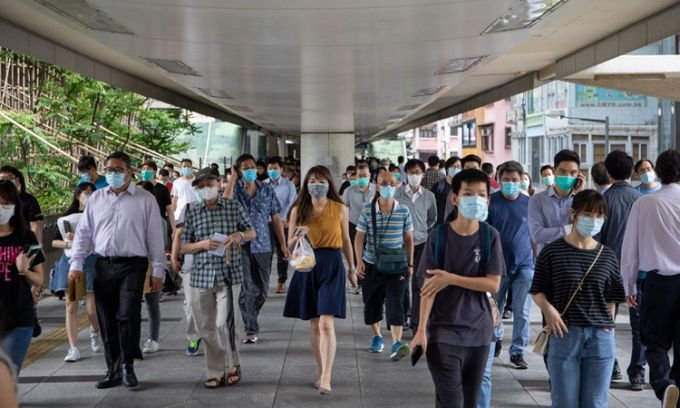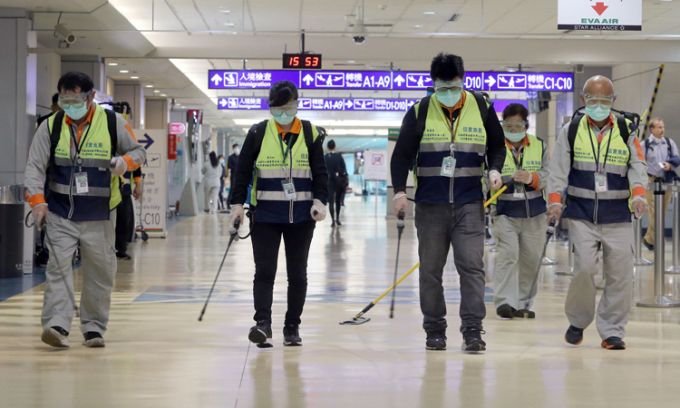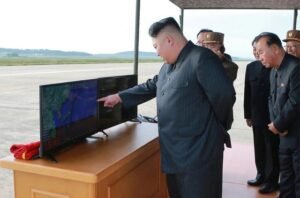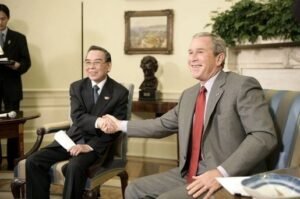
Lessons from Asia against Covid-19 4
`Everyone here remembers the difficult time in 2003 and doesn’t want it to repeat itself,` shared Lam, who once suffered from acute respiratory distress syndrome SARS.
When nCoV appeared, he immediately wore a mask when going out, washed his hands frequently and avoided crowds.
A deeper awareness of the dangers of pandemics, shaped by past experiences confronting SARS and other epidemics, is seen as one of the reasons much of Asia has fared well against Covid-19
Europe and the US account for three-quarters of more than 3.9 million global nCoV infections.
Hong Kong residents all wear masks on Wan Chai Street, May 6.
This week, Hong Kong Special Region, China, went 14 days without recording a new case of infection in the community, while Taiwan went three weeks without reporting a case of internal infection.
Even in Singapore and Japan, where outbreaks suddenly broke out last month, Covid-19 did not get out of control or attack the entire population, largely because of the response to the epidemic and a sense of self-reliance.
China, where the outbreak originated, appears to have controlled nCoV having recorded just six cases since May 3, although this success has required more draconian measures than other countries, including one of
All of these places face the risk of new waves of infection, especially as countries relax their blockades and resume socio-economic activities.
Many Asian countries share characteristics that experts say have helped them cope with Covid-19 relatively well so far, including a tendency to react quickly at the earliest signs of the virus.
`Act fast. That’s the biggest lesson,` said Guy Thwaites, director of Oxford University’s Clinical Research Unit in Vietnam.
Asian countries have taken various precise steps.
But most countries have contingency plans well in place before a pandemic strikes, and citizens have experience responding to epidemics such as avian flu, H1N1 and SARS.
Japanese Prime Minister Shinzo Abe, who has been criticized for his slow response, declared a nationwide state of emergency on April 16, but many people had been wearing masks for weeks before.
Geographic proximity to China may also bring unexpected advantages.
South Korea’s quick response was learned from its lack of preparedness during the Middle East respiratory syndrome (MERS) outbreak five years ago.

Korean medical staff perform tests on vehicles in Goyang, Seoul, on February 29.
Community isolation measures were also implemented in Hong Kong very soon after mainland China announced the first blockade orders in January. City officials closed schools and asked thousands of civil servants to
Hong Kong officials have established a response team consisting of many departments and introduced strict regulations on tracking contact history and isolating suspected cases, using abandoned campsites and public houses to
These Hong Kong response strategies were drawn from the lessons of the SARS epidemic in 2003. A year after that crisis, Hong Kong established the Health Protection Center to deal with disease outbreaks.
`The last 15-plus years have been our time of peace, and it’s been a time where we’ve prepared everything. Now we’re ready for this war,` Ben Cowling, head of the department of biostatistics and epidemiology
Hong Kong saw a second outbreak of nCoV in March when many people returned from abroad.
The `lockdown and unblockade` strategy, adjusted depending on the stage of the epidemic, will be maintained for many months to come, Hong Kong Chief Executive Carrie Lam said on May 5.
In Taiwan, public health experts believe that similar measures have kept infection rates low, including the voluntary use of masks and travel restrictions even without a government lockdown, along with
In Vietnam, a country that has recorded 288 cases, officials closed schools and universities almost immediately after the first case, stopped flights to China, sent messages providing information and
As Covid-19 spread to Europe and the US, officials continued to stop almost all international flights.

Staff spray disinfectant at Taoyuan International Airport, Taiwan, on January 22.
These Asian countries did not underestimate the dangers of Covid-19, according to Ali H. Mokdad, a former epidemiologist with the US Centers for Disease Control and Prevention (CDC) and now a professor
`The faster you close, the faster you open,` Mokdad asserts.



